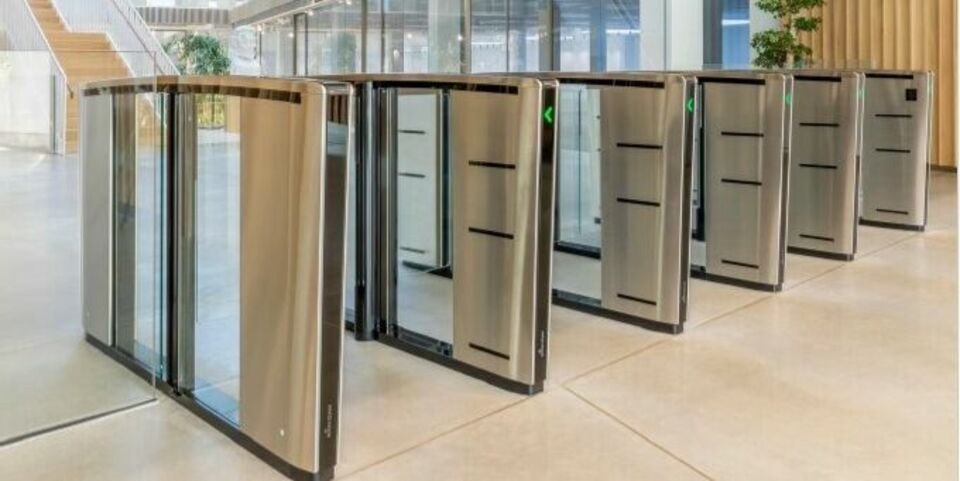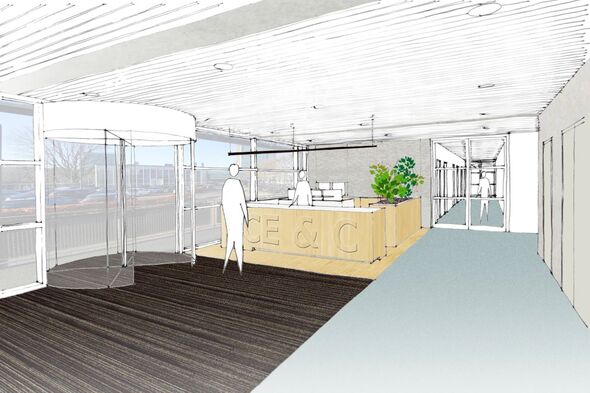Helix building to get security gates
The Department of Chemical Engineering & Chemistry is getting security gates that can be opened with the TU/e campus card. Based on physical security zoning and authorizations, you’ll be able to access certain parts of the Helix building. This will improve the security of labs and other spaces, as well as make things more convenient for students following lectures there.
An undercover operation by Cursor in February 2023 revealed that the security of the labs in Helix wasn’t up to scratch. It was possible to gain unauthorized access to the labs and get to hazardous substances without any problems. Following this, the department took measures and the fire doors were permanently closed. These can only be opened using a campus card with clearance. Mark Boneschanscher, interim managing director of the Department of Chemical Engineering & Chemistry, tells us that “the 2020/2021 Risk Inventory and Evaluation had already shown that access control wasn’t up to scratch and follow-up actions had been scheduled”.
Closing the fire doors turned out not to be the ideal solution because the heavy doors weren’t designed to open and close all the time. The security gates will solve this problem, and will also make sure the lecture rooms – which for the moment are in a secure zone behind a door with a card reader that students are unable to access – stay properly accessible to students without them being able to enter the labs just like that.
Boneschanscher realizes that there is an ongoing, university-wide debate about safety. “Not just physical safety and safety when it comes to chemicals, but also cyber and knowledge security. That’s why we are introducing zones with safety measures. You’ll be able to use your TU/e card to access the zones that correspond to your study program or job.”
“A revolving door will be installed at reception. Past this door, visitors can’t go beyond the first security gates, which can be opened using a campus card. After that, you have an extra zone to get to the lecture rooms and another extra zone to get to the labs.”
Gates
“The security gates, which are similar to the ones at major Dutch railway stations, are intended for one person at a time,” says Boneschanscher. But won’t it be easy to jump them? Boneschanscher, with a smile: “Yes. But if you do that, you’ll be noticed and I am counting on social control and colleagues who work there to intervene. There’s always a certain tension and a balance to be struck between safety and feasibility.”
Culture change required
The Helix building has labs on several floors, always across from offices. “That’s the tricky thing about this building when it comes to access security. It was a conscious choice when the building was designed: always keep the labs in sight to make sure you work conscientiously and can keep an eye on one another when someone’s working in the lab. But in terms of access security, it’s less than ideal because it makes it more difficult to separate the different types of access.”
“It sometimes happens that offices are visited by people who are then also able to access the labs,” says the managing director. “We simply have to start dealing with this differently. A member of academic staff will have to go to reception to pick up their visitors. That may require a culture change, but it’s perfectly normal at larger companies. And it quickly will be here as well. The reality is that we simply can’t work with open doors anymore. Having said that, locking everything isn’t the answer either. We have to look closely at what we can and can’t do between those extremes, which means a proper evaluation of our culture, norms, values, and required safety.”
Timelines
The department recently started creating the new security zones. “It has been incorporated into the major replacement maintenance project that’s being launched in the building,” says Boneschanscher. “They already started on the utility rooms in September. The project will run for over a year, at the end of which the entire building will have had a ‘facelift’ and will be good to go for the next decade or so.”



Discussion